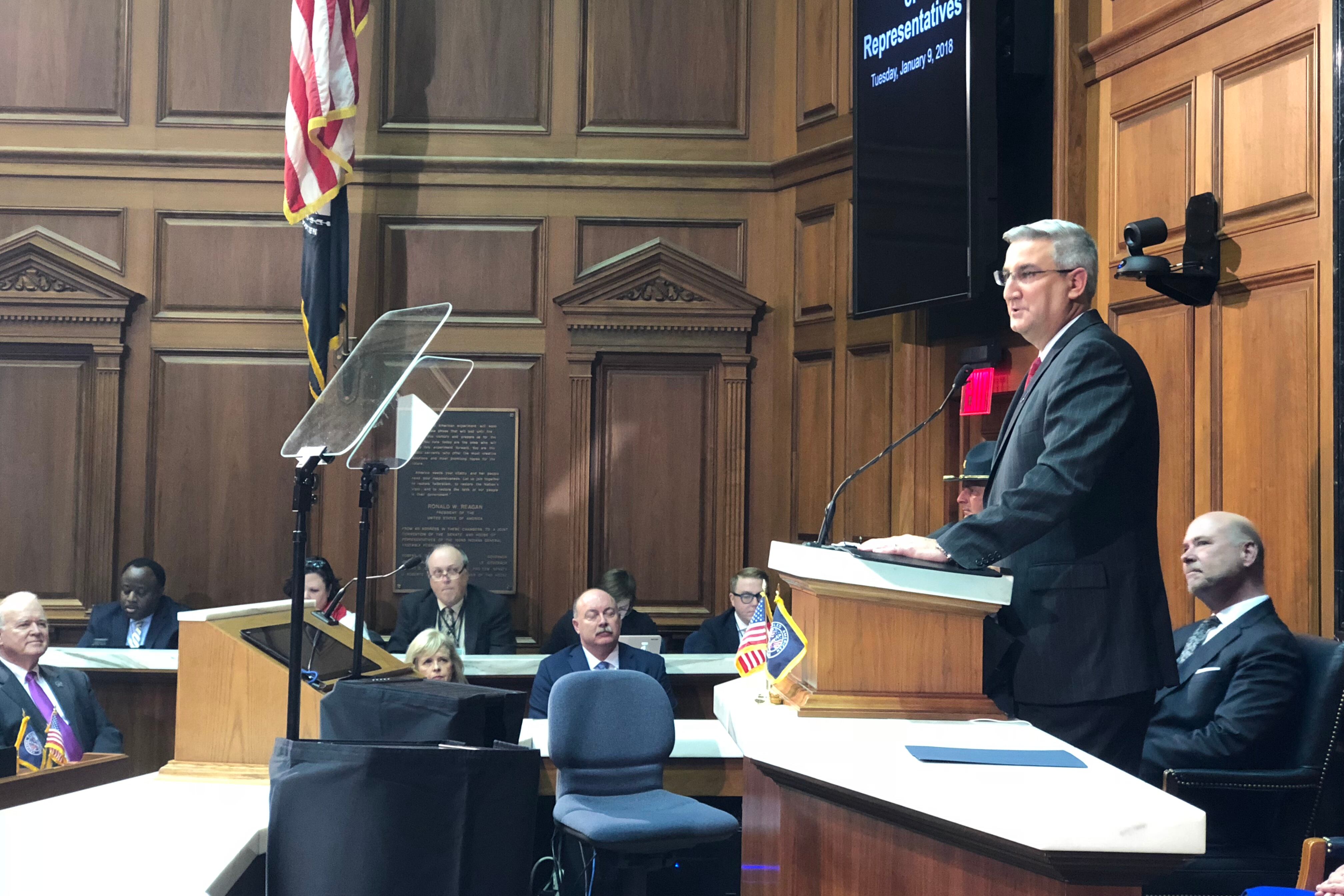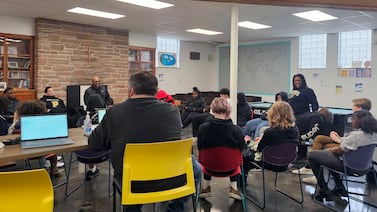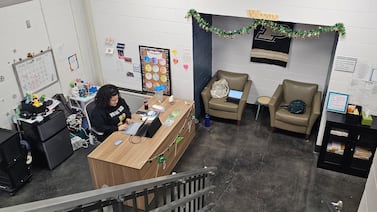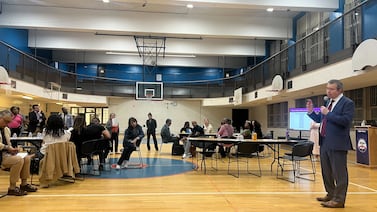Indiana Gov. Eric Holcomb has proposed a nearly $1.2 billion increase for K-12 schools as one of his priorities ahead of the 2023 legislative session, calling it the single biggest funding increase for schools in the state’s history.
Under Holcomb’s proposal, state K-12 tuition support would rise 6% in the first year of the biennial budget, and 2% the following year, for a total allocation of $17.5 billion.
“[It’s] significant to say the least,” Holcomb said during a Wednesday press conference at Liberty Park Elementary School in Indianapolis.
The increase would come on the heels of another historic funding bump in the 2021 state budget, which was meant to help schools boost teacher salaries. In a press release, Holcomb, a Republican, said he supports further raising the state’s average teacher salary from the current figure of $56,600 to $60,000.
Holcomb also proposed eliminating textbook and curriculum fees for Hoosier families by creating a $160 million fund to pay for all such supplies for more than 1 million students in public schools, as well as students from low-income backgrounds at nonpublic schools. Indiana is one of only a handful of states that allow schools to charge families for textbooks.
Early literacy also featured in the governor’s budget proposals, which included a $20 million incentive program to reward schools that improve their passing rates on the state reading test, and a $4.1 million initiative to expand access to the Dolly Parton Imagination Library statewide.
Holcomb also proposed a $184 million funding increase for higher education institutions for a total of $3 billion over the biennium, as well as a new funding incentive for colleges that keep graduates in Indiana.
Echoing calls from local education advocates, Holcomb supported automatically enrolling eligible students in the 21st Century Scholars program, which pays for tuition costs at Indiana colleges for students who qualify.
Expanding early education is a priority
Community organizations, along with the Indiana Chamber of Commerce, have pushed expanding access to child care as critical to the state’s economic health.
Holcomb’s budget proposal included several initiatives on early education, including expanding eligibility for the state’s two child care support programs, On My Way Pre-K and the Child Care and Development Fund.
His proposal would raise the income eligibility limit for the programs from 127% to 138% of the federal poverty limit, allowing around 5,000 more families to qualify, according to a press release.
The threshold would remain lower than the threshold for Choice Scholarship Vouchers, which offer money to students from families with an annual income equal to or below 300% of the poverty limit to attend private schools.
Holcomb’s proposal also includes establishing a federally funded grant to help employers create childcare programs.
Focusing on overall, not weighted, school funding
Holcomb said he chose to focus on an increase in the overall state tuition support — which supports both K-12 schools and the Choice Scholarship program — rather than increase funding earmarked for specific groups of students, like those who come from low-income backgrounds or are learning English. His budget proposal, however, includes a $45 million increase for English learner students.
“It provides obviously the most flexibility,” he said of the tuition support increase.
A summer legislative committee heard school district officials testify about the need to increase supplemental funding for specific student groups. The Indiana Department of Education has also called for the state to nearly double its support for English learner students, from $55 million to $100 million.
Secretary of Education Katie Jenner said at the press conference that the department still hopes to get the additional funds for English learners.
Asked whether he thought lawmakers would support his proposed funding increases, especially amid fears of a recession, Holcomb characterized the requests in the overall budget as legitimate and needed.
He added that he felt confident of convincing lawmakers to adopt his proposals as the legislature prepares to convene on Jan. 9.
“We’ll be mindful to not spend more than we have,” Holcomb said.
This story has been updated.
Aleksandra Appleton covers Indiana education policy and writes about K-12 schools across the state. Contact her at aappleton@chalkbeat.org.








